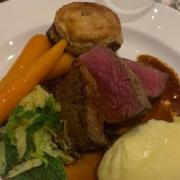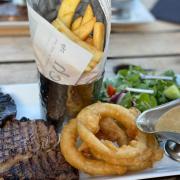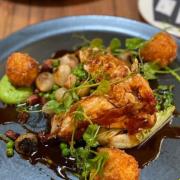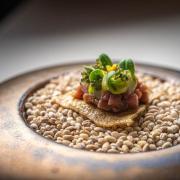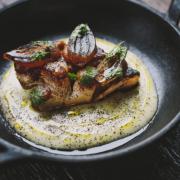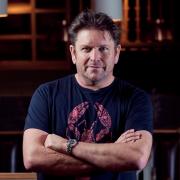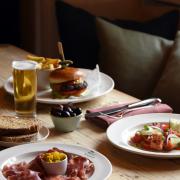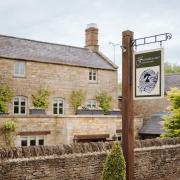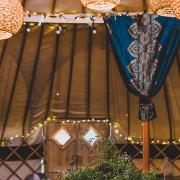Katie Jarvis explains how you can support poor producers in Third World countries instead of filling the coffers of multinational corporations.
ASK most people if they think they're fair to others, and you'll probably get an affronted "Of course!"
But there's a growing recognition that we could unwittingly be exploiting some of the world's poorest citizens every time we go shopping. According to UNICEF, an estimated 218 million children aged five to 17 are engaged in child labour, and that doesn't include domestic employment. For around 126 million of them, their work is actively dangerous - perhaps in agriculture with pesticides or using dangerous machines. Then there are the millions of coffee farmers in the developing world working long and hard hours for huge profits - which bypass them and go straight into the coffers of multinational companies. Other trading concerns include sustainability, food miles and the environmental conditions in which goods are produced.
Yet every day, millions of goods produced in this unethical way end up in our cupboards at home.
A few years ago, Western consumers could be forgiven for feeling helpless to effect change - but that excuse is fast disappearing. Thanks to the 'Fairtrade' system, there is now a way of guaranteeing we're fair to the people we buy from, even if they live thousands of miles away.
Janet Dufton, chair of the Winchcombe Fairtrade Town Group explains more about this ethical way of shopping.
Janet, how can people shop more fairly?
There are three aspects to shopping ethically, all of which are complementary. There's the environmentally-friendly aspect, which means looking at air miles and packaging. Then there's buying locally, whereby we support traders in our own communities. But just as important is buying Fairtrade goods, most of which cannot be produced locally - coffee, tea, sugar, bananas, raisins and chocolate, for example.
What is 'Fairtrade'?
It's one of the easiest ways of supporting poor producers in Third World countries. Fairtrade is a system which independently verifies that goods have been fairly traded. If you see a Fairtrade logo, you can be sure that the producers work in fair conditions and have been paid a fair price. In addition, these producers are given an extra premium they can use for social projects that will benefit the whole community. In the same way that the Soil Association guarantees organic produce, there are very strict rules that apply here, too. In other words, every time you buy Fairtrade bananas or coffee, you can be 100 percent sure you're not just paying extra for some big company to syphon off.
Fairtrade does cost more...
Yes - these three aspects of ethical shopping have that same factor. You might pay a bit more, but it's a question of thinking long term: some consumer decisions really do cost the earth. Once upon a time, we were an empire and we sucked out of the other countries as much as we could for our own benefit. We're all realising now that's not healthy for either us or them. It's important for all of us that producers in Third World countries can have the dignity and the ability to sustain their own lifestyles and their own communities.
Winchcombe is one of a growing number of Fairtrade towns. How did that come about?
I happened to go for a weekend to Ludlow, which is also a Fairtrade town, and there seemed to be so many parallels with Winchcombe that I decided we ought to go for it, too. I came back and contacted people I knew who were interested in Fairtrade. Ten of us formed a group and held a public meeting. We were amazed when around 50 people turned up, all very positive about the idea. We decided one of the most important things to do was to educate people about Fairtrade so we put together a basic three-fold leaflet that we physically delivered to every house in Winchcombe and Greet. We also had to fulfil certain criteria to qualify for Fairtrade status, such as getting the backing of the local council, and making sure a range of products was available in the town's shops and cafes. In March this year - two years on from my original idea - we became a Fairtrade town. It's now part of our identity. It's our way of saying: We might be a little market town in the Cotswolds, but that doesn't stop us caring about the wider world.
Are Fairtrade products as good as 'conventional' ones?
Nowadays, they more than compare. It is true that when Fairtrade coffee in particular was first introduced, it was awful! But times have changed. One of the other Fairtrade towns did a tasting for three weeks, comparing different coffees of the same kind of price. They were surprised to find that, every time, the Fairtrade coffee came out best.
Should we feel morally obliged to buy Fairtrade wherever we can?
If all you ever do is buy Fairtrade bananas, or simply find a coffee or tea that you like, then that's fine. It's better to do a little bit than not do anything at all. It all helps -through consumer pressure, companies are beginning to realise it's more in their interest to become part of the scheme.
But let's put it this way: If everything else was labelled unfair trade, it would be an even easier decision.
For more information about Fairtrade, visit www.fairtrade.org.uk or call 020 7405 5942



